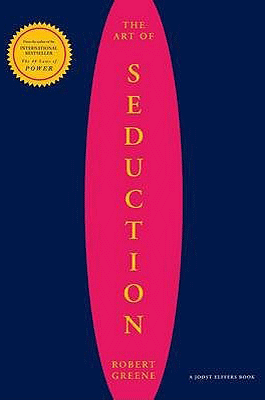Tactical Hell or Strategic Heaven?
In my book The 33 Strategies of War, I make the point that most of us exist in a realm that I call tactical hell. This hell consists of all of the people around us who are vying for power or some kind of control, and whose actions intersect our lives in a thousand different directions. We are constantly having to react to what this person does or says, getting emotional in the process. Once you sink into this hell, it is very difficult to raise your mind above it. You are dealing with one battle after another, and none of them end with any resolution. It is very hard for you to see the hell for what it is; you are too close to it, too mired in it to think of any other way. Because there are so many people now vying for power in this world, and our attentions are so distracted in many different directions, this dynamic only gets worse and worse.
Strategy is the only answer. This is not some dry academic point of contention, or me trying to sell more books. You can read plenty of other books on strategy. It is actually a matter of grave importance, the difference between a life of misery and one of balance and success. Strategy is a mental process in which your mind elevates itself above the battlefield. You have a sense of a larger purpose for your life, where you want to be down the road, what you were destined to accomplish. This makes it easier to decide what is truly important, what battles to avoid. You are able to control your emotions, to view the world with a degree of detachment.
If a person tries to suck you into their battles or problems, you have the necessary distance and perspective to keep away, or help them without losing your balance. You see everything as a strategic concern, including how the group you lead is structured–for mobility, for morale. Once you are on this track, everything becomes easier. A defeat or setback is a lesson to be learned, not a personal affront. Success does not go to your head, make you overreach.
There are false strategists in this world who are nothing more than master tacticians. They look like strategists because they are able to manage immediate problems with a degree of aplomb. They know how to fix problems. They get ahead, or rather they are able to just raise their heads above the water. But they inevitably slip up. I consider President Bill Clinton to be an example of this. As compared to an Abraham Lincoln or Franklin Delano Roosevelt, true strategists.
There are others who also seem to have a vision, to have a large plan in life. They look like strategists as well, but their plans have no relation to reality. Their plans and goals are really reflections of their desires. And in the execution we can see this. Everything turns into friction. President Bush’s “grand strategy” to remold the Middle East is an example of this. It looks large and encompassing, on paper it makes some sense, but in practice it is a massive failure, because it has no relation to the reality on the ground. Strategists are realists if nothing else–they can look at the world and themselves with a higher degree of objectivity than others.
My books have been described as evil and immoral, and me as someone who is creating more harm in this world by writing them. Look at some of the comments on the blog. I get them all the time. I don’t take it personally, but the truth as I see it is that the books are not evil at all. I believe far more bad things occur in this world because people do not know how to operate effectively, or strategically. They launch wars without knowing where they are headed; they start businesses that are on shaky ground and get nowhere; they direct political campaigns that are badly thought out and fail; they waste valuable time and energy on things that do not matter. It is tempting for people to talk about good and evil, from their armchairs. Nothing is easier. But to translate those ideas into reality requires strategic thinking. Even Gandhi knew that.
To the ancient Greeks, far more harm is caused in this world by stupidity and incompetence than outright evil. Those who are overtly evil can be combated, because they are easy to recognize and fight against. The incompetent and stupid are far more dangerous because we are never quite sure where they are leading us, until it is too late. The greatest military disasters in history have more often than not originated from leaders who lack strategic wisdom.
It is almost a religious matter: will you convert to the light side, to strategy? Or will you keep yourself in tactical hell? The mental commitment to being more of a strategist in life is half of the battle. It is all that I ask of my readers.







